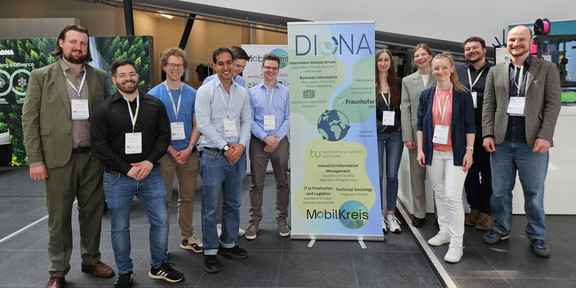Circular economy at the Circularity Days in Wolfsburg

According to the German sustainability strategy, the shift towards a circular economy aims to decouple consumption from growth and is therefore an important arena for socio-ecological transformation. The Circularity Days emerged in 2022 from the Materials Symposium and the Future Automotive Production Conference, which in turn have focused on closed-loop production and sustainable materials since 2020. From circular product design and life cycle assessment to AI optimization, all topics related to circular value creation are discussed at the Circularity Days, with the primary goal of the conference being the exchange between science and industry.
Exchange between science and industry is also one of the foundations of the DIONA project, as the aim is to enable small and medium-sized companies in conventional, linear production in the German automotive industry in particular to operate in a circular economy as part of the funding measure "Towards sustainable mobility through circular value creation (MobilKreis)" in the BMBF's "Future of value creation - research on production, services and work" program. A milestone of the project, the so-called MobilKreis Digital Hub, was presented for the first time by Lisa Remke (Chair of Business Informatics - Business Process and Information Management, Chemnitz University of Technology) and Marlon Philipp at the Circularity Days. Over the course of the project, the hub will promote an open and collaborative culture in circular parts of the industry, encourage companies to share best practices and resources through its infrastructure, and enable collective investment in sustainable initiatives.




![[Translate to English:] [Translate to English:]](/storages/zentraler_bilderpool/_processed_/a/f/csm_Kontakt_b86e8d8ecc.png)
